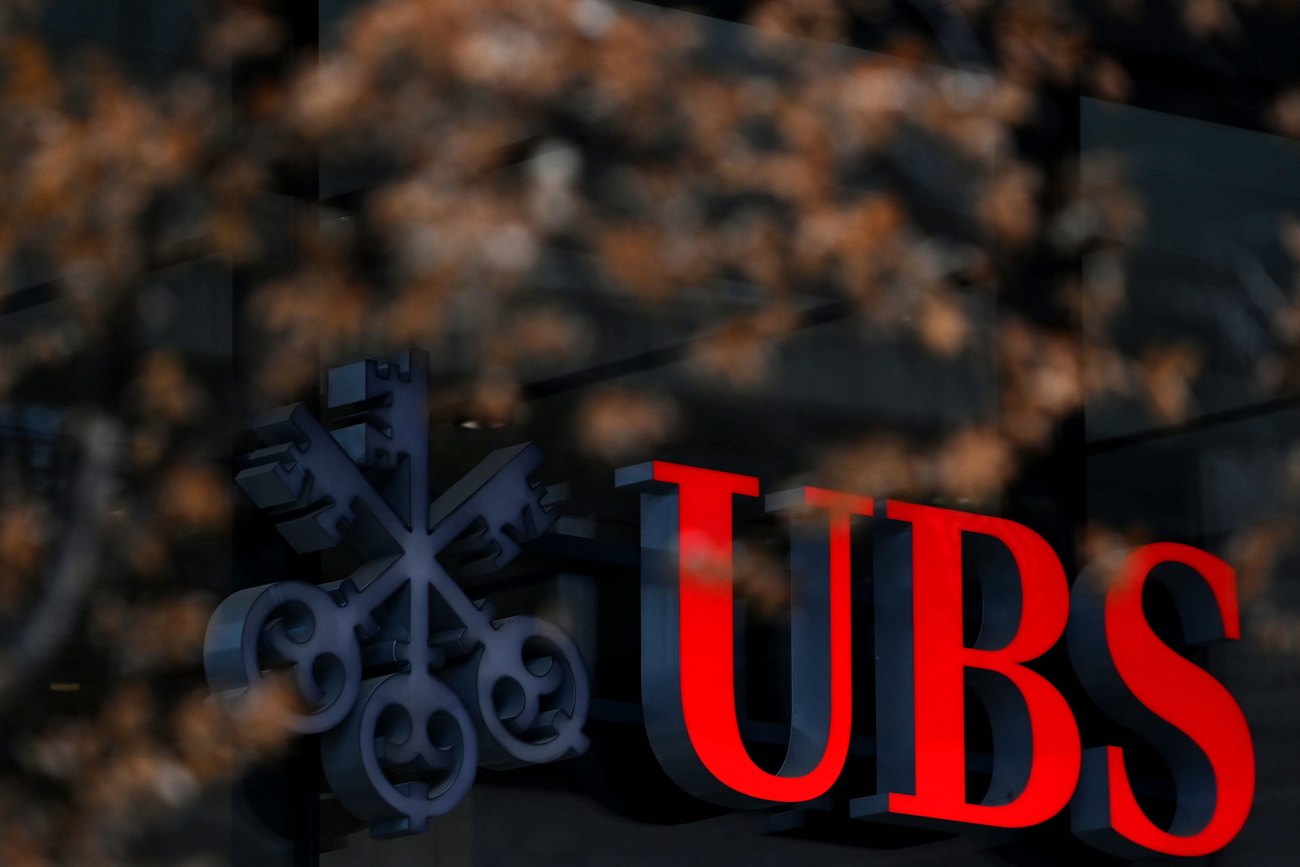How to tame UBS without making the bank toothless

The Swiss government has started the ball rolling on mission impossible: reducing the threat UBS poses to the Swiss economy without rendering the bank ineffective on the global stage.
Since taking over failed rival Credit Suisse last year, UBS has become Switzerland’s sole surviving global bank – capable of bringing down the country’s economy if it collapses. The bank employs thousands of workers, is a major issuer of mortgage loans and provides services to many Swiss businesses.
The Federal Council issued a report on April 10 proposing how to strengthen bank regulations to mitigate this risk. It makes 22 recommendations for de-risking UBS and empowering the financial regulator.
+ Does Switzerland need a large global bank?
Reaction to the report though has been negative. Politicians, the media and economists bemoan the lack of clarity in the dense 340-page document.
“It seems to have been compiled with the strategy of creating information overload to kill interest in the matter,” former UBS chief economist Klaus Wellershoff told SWI swissinfo.ch.
The government’s failure to produce a hard-hitting report with detailed concrete actions may have a reason, according to Jan Baumann, economic correspondent at Swiss public broadcaster SRF.
Competitive instinct
“Reading between the lines, the message is: we don’t want to drive the flagship UBS away from the Swiss financial centre by being too strict,” he wrote.

More
Why a monster UBS bank scares Switzerland
While UBS has never threatened to exit Switzerland, executives have launched a robust defence against potential over-regulation.
UBS has bullish ambitions to expand its wealth management business, particularly in the United States. UBS chair Colm Kelleher warns that that over-regulation in Switzerland could kill this target by handing rival banks a competitive advantage.
Above all, UBS objects to proposals to increase the amount of capital it must hold as a cushion against potential losses.
Wellershof has some sympathy with this message but believes parliament will nevertheless insist on this measure. The wounds of Credit Suisse’s dramatic demise last year are still fresh in the national psyche.
Blockbuster pay award
“The issue cannot be avoided politically. Parliament will have to come up with some form of higher capital requirement even though there is no real economic reasoning behind it.”
The government report states that “quantitative and qualitative capital requirements for systemically important banks should be tightened”, without saying how much extra reserves UBS should be compelled to hold.
UBS has further rattled belligerent politicians by awarding CEO Sergio Ermotti CHF14.4 million ($15.9 million) for the nine months of work he completed last year.
“Salaries worth millions of francs without any personal responsibility in the event of failure are indecent,” said Green Liberal Party parliamentarian Tiana Moser.
The government suggests enshrining salary restrictions in the law, including a provision making executives pay back bonuses if they run a bank into trouble. It also suggests increasing the powers of the financial regulator to hold executives to account for their actions and to issue fines.
Wave of regulation
The Swiss government is caught between political party demands to clip the wings of UBS and the objections of the financial industry. The lack of definition in its report has angered both sides.
“Since the report lacks focus, it threatens to unleash a wave of regulation that would impose a massive burden on banks and the economy as a whole,” said Roman Studer, CEO of the Swiss Bankers Association lobby group.
The political process of reforming bank regulations will not get underway in earnest until a parliamentary committee of inquiry issues its report on the Credit Suisse crisis towards the end of this year.
The Swiss media expects this to delay final decisions being taken by lawmakers until at least 2025.
More
Edited by Virginie Mangin/sb

In compliance with the JTI standards
More: SWI swissinfo.ch certified by the Journalism Trust Initiative









You can find an overview of ongoing debates with our journalists here . Please join us!
If you want to start a conversation about a topic raised in this article or want to report factual errors, email us at english@swissinfo.ch.